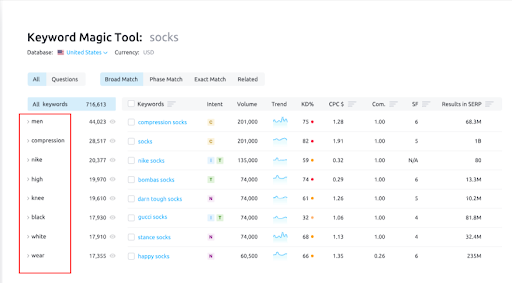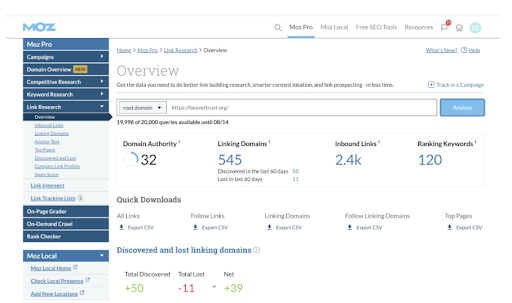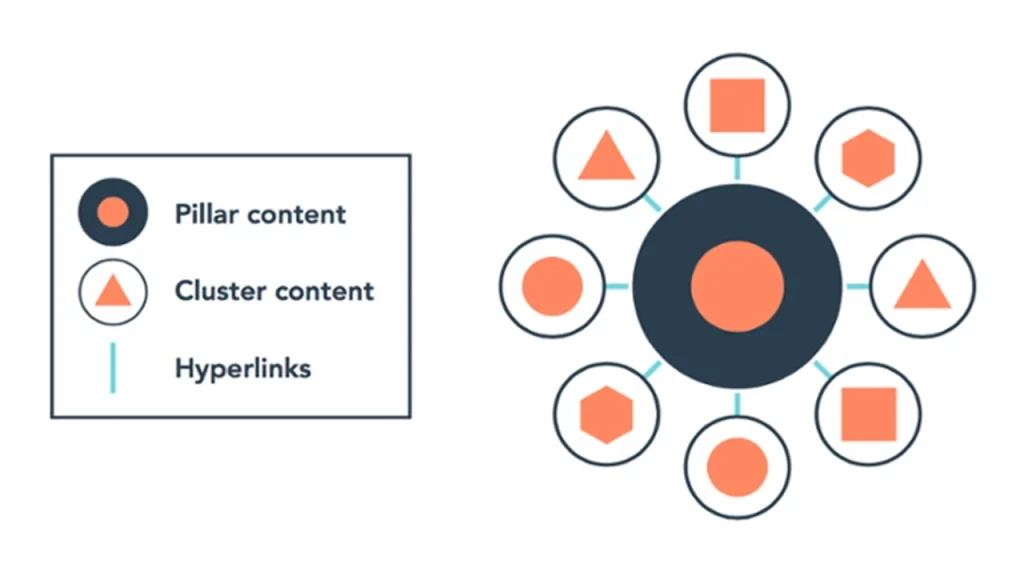Is SEO Dead Because of AI? Quick Answer for 2024
February 7, 2024
Neha Bawa
Summary: The blog post answers all your queries and concerns about AI replacing SEO. It also highlights its benefits and emphasizes the continued relevance of human expertise. Find some interesting FAQs at the end.
In the digital marketing industry, there’s a rising concern about AI overshadowing traditional SEO. AI now handles daily tasks and provides in-depth insights that previously took weeks or even months to uncover.
However, what many professionals fail to realize is that AI isn’t a threat; it’s evolving SEO, enhancing efficiency, and opening up new opportunities.
In this blog, we’ll debunk the misconception that AI spells the demise of SEO and delve into how it’s reshaping the latest SEO strategies.
SEO is Not Dead: Still Alive and Kicking!
SEO isn’t dead because of AI, not in 2024 or even in the next 10 years.
AI won’t replace jobs in SEO either. Instead, it will help with repetitive tasks, so humans can focus on important tasks like planning and improving content.
For example, Google’s BERT tool understands what users want better, making search results more relevant.
So, SEO is still alive and AI is here to make it even better!
Benefits of Artificial Intelligence in SEO
1. Automated Tasks
We can use AI to streamline our workflows by automating repetitive tasks. Tools like SEMrush and Ahrefs use AI to conduct comprehensive keyword research, saving agencies valuable time and resources.

SEMrush’s Keyword Magic Tool employs machine learning and suggests related keywords, helping discover untapped opportunities.
2. Data-Driven Insights
AI can further analyze vast amounts of data, providing valuable insights into hidden trends, customer behaviors, and competitor strategies. This data-driven approach empowers everyone to make more informed decisions.

Moz’s AI-driven tool, Moz Pro, provides insights into competitors’ backlink strategies, enabling agencies to refine their link-building strategies.
3. Personalized Experiences
Leveraging AI, agencies can now create personalized content and outreach strategies based on user data. This personalization enhances user engagement and conversion rates by delivering content tailored to individual preferences.

HubSpot’s Content Strategy tool uses AI to analyze user behavior and preferences, allowing agencies to craft personalized content.
AI-Powered SEO: A Game Changer for Agencies
1. Boost Efficiency and Productivity
AI tools significantly enhance efficiency by automating time-consuming tasks. This allows agencies to allocate more time to strategic planning, content creation, and client interaction. While focusing on the most important tasks, it automatically leads to better results.
According to a study by Deloitte, businesses that leverage AI for automation witness a 20% increase in productivity on average.
2. Data-Driven Decision-Making
With the ability to process large datasets quickly, AI provides agencies with valuable insights, enabling them to make data-driven decisions. This results in more effective SEO strategies that adapt to changing trends and algorithms.
Google Analytics uses AI to analyze website data, helping agencies identify patterns and make informed decisions to optimize site performance.
3. Personalization for Higher Conversions
AI also helps in creating personalized experiences for users, increasing the chances of connectivity as well as conversions. By understanding user behavior and preferences, agencies can tailor content and outreach strategies to resonate with their target audience.
Epsilon’s research shows that 80% of consumers are more likely to purchase when brands offer personalized experiences.
The Human Touch will Always Remain Indispensable
1. Creativity and Critical Thinking
While AI excels at data analysis and automation, it cannot replace the human ability to think creatively. Devising innovative content will still hold extreme importance.
Nike’s “Play New” campaign, brings innovation and inspiration to every individual. They define “athlete” as anyone with a body, emphasizing inclusivity. The titled targeted campaign highlights the joy of physical movement, regardless of skill level.

AI can’t suggest creative ideas like these, at least for now.
2. Building Relationships and Trust
Agencies play a vital role in building relationships with clients. Understanding unique client needs, providing strategic guidance, and maintaining open communication are aspects that AI lacks.
According to Salesforce, 76% of consumers say trust is the most important factor in their decision to buy from a brand.
3. Ethical Considerations
Agencies ensure that AI is used responsibly and ethically. They prevent the manipulation of search engines or the spread of misinformation, ensuring that SEO practices adhere to ethical standards.
SEO agencies actively adhere to Google’s Webmaster Guidelines, ensuring ethical SEO practices that prioritize user experience and transparency.
The idea that AI is the enemy of SEO is a big misconception. AI is a powerful ally that, when embraced the right way, can lead to unparalleled success in the digital landscape. Agencies that leverage AI can boost efficiency, gain valuable insights, and provide personalized experiences for their clients. While AI handles the technical aspects, the human touch remains irreplaceable in terms of creativity, critical thinking, relationship building, and ethical considerations.
Other Factors That Make People Think SEO is Dead
Emergence of New Marketing Strategies
With the emergence of social media marketing, influencer marketing, and content marketing, some believe that traditional SEO is losing relevance. These newer strategies often receive more attention due to their perceived effectiveness in engaging audiences and driving results.
While new strategies have indeed gained prominence, traditional SEO remains a fundamental aspect of online visibility and traffic generation.
Rather than competing with SEO, these strategies can complement it. SEO provides a strong foundation by improving website visibility in SERPs, while social media, influencer, and content marketing can enhance brand awareness and engagement across various platforms.
Algorithm Updates
Updates by search engines like Google can disrupt established SEO practices and lead to fluctuations in website traffic and rankings.
When previously successful SEO tactics no longer show desired results due to algorithm changes, it can fuel the perception that SEO is losing its effectiveness.
While updates by Google can indeed impact SEO performance, they are intended to improve the relevance and quality of search results for users. Rather than viewing these updates as threats, SEO practitioners can adapt their strategies to align with the evolving search algorithm. By focusing on providing valuable, quality content and following best practices in SEO, businesses can maintain and improve their search rankings despite algorithm changes.
Misunderstanding of SEO Complexity
SEO is a multifaceted discipline that requires strategic planning. Some individuals may underestimate the complexity of SEO and its importance in achieving long-term marketing goals. This misunderstanding can lead to the belief that SEO is no longer necessary or effective in the rapidly changing digital landscape.
Despite these challenges, it’s important to recognize that SEO remains a critical component of digital marketing strategies. By staying informed about industry trends, adapting to algorithm updates, and refining SEO tactics, businesses can continue to leverage the power of SEO to reach their target audience.
If you’re interested in SEO further, you can check out our SEO services or reach out to us to speak with our experts.
FAQs
-
Will SEO exist in 10 years?
While predicting the exact trajectory of SEO over the next 10 years is challenging, SEO will most likely continue to exist but undergo significant transformations.
The future of SEO may involve increased integration of advanced technologies like artificial intelligence, voice search optimization, and a heightened focus on user experience. The importance of high-quality, relevant content, ethical SEO practices, and adaptation to emerging technologies will persist. SEO professionals and businesses will need to stay abreast of these trends and changes, emphasizing customer-centric strategies and agility to remain effective in the evolving digital landscape.
-
Will AI eliminate SEO jobs?
AI is not poised to eliminate SEO jobs but rather transform the nature of these roles.
While technologies enhance automation in various SEO tasks, such as keyword research, data analysis, and technical audits, they do not replace the need for human expertise. Instead, AI is a powerful tool that automates routine and time-consuming aspects, allowing SEO professionals and marketers to focus on strategic thinking, creative content optimization, and adapting to evolving SERPs.
The symbiotic relationship between AI and SEO enables professionals to leverage technology for efficiency, data-driven insights, and enhanced results. Ensuring that human skills such as creativity, critical thinking, and strategic decision-making remain integral to the success of SEO efforts.
-
What does SEO look like in 2024?
SEO is set to evolve with the constant influence of technological advancements.
- AI integration will deepen, enhancing the search for better user intent understanding. Mobile and voice search will remain pivotal, reflecting the growing use of mobile devices.
- The emphasis on user experience (UX) will persist, with core web vitals impacting search rankings.
- SEO trends like Visual and video search optimization will gain importance, necessitating strategies for image and video content.
- Local SEO will continue to be crucial, emphasizing hyperlocal targeting.
- Augmented Reality (AR), Virtual Reality (VR), and Natural Language Processing (NLP) integration may present new opportunities, requiring adaptations in SEO for immersive experiences.
- Security and privacy considerations will grow, with HTTPS and data protection compliance becoming essential.
- E-E-A-T (Experience, Expertise, Authoritativeness, Trustworthiness) will remain a paramount ranking factor, underscoring the importance of trustworthy and high-quality content.
SEO will demand agility, adapting to emerging technologies, and prioritizing user-centric strategies for sustained online visibility.
-
Is SEO a promising career?
Yes, SEO (Search Engine Optimization) is a promising career with substantial growth potential. As businesses increasingly recognize the importance of a strong online presence, the demand for skilled professionals will continue to rise.
Here are 6 factors that make SEO a promising career:
1. Digital Transformation: With the ongoing digital transformation, businesses are allocating significant resources to improve their online visibility. SEO plays a crucial role in helping companies rank higher in search engine results, making it an essential component of digital marketing strategies.
2. Continuous Evolution: SEO is dynamic and constantly evolving. Search engines frequently undergo, and present ongoing challenges and opportunities for industry professionals to adapt and stay current. This dynamic nature ensures that the field remains engaging and requires continuous learning.
3. Global Reach: The internet has no geographical boundaries, providing experts with the opportunity to work on campaigns that target audiences globally. This global reach opens doors for diverse and exciting projects.
4. Diverse Job Opportunities: SEO professionals can find opportunities in various sectors, including agencies, in-house marketing teams, e-commerce, and consultancy. This diversity allows individuals to choose a niche that aligns with their interests and strengths.
5. Measurable Impact: SEO efforts directly impact a website’s visibility and performance, and the results are measurable. Professionals can showcase the tangible impact of their work through improvements in search rankings, organic traffic, and ultimately, business success.
6. High Demand for Expertise: As SEO becomes increasingly complex, businesses are seeking skilled professionals who can navigate the intricacies of search engines.